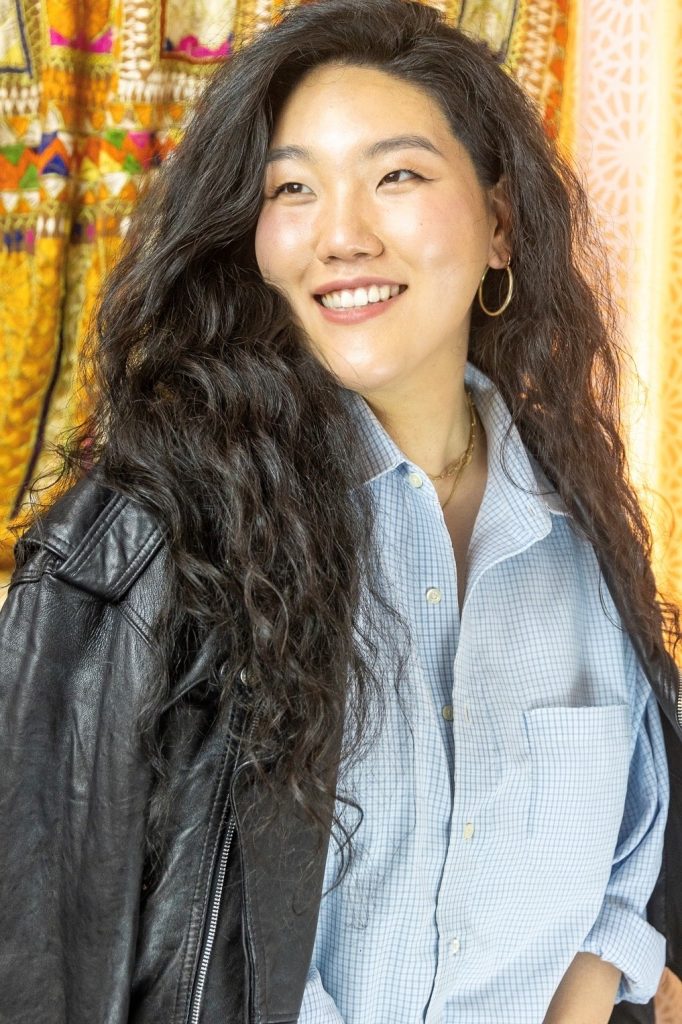Vonnie Lee, a student in the BScN program at the Lawrence Bloomberg Faculty of Nursing is the winner of the 2022 Sopman Humanitarian Award, presented by the University Health Network. Selected from among a group of nominees, Lee is being recognized for her unique and compassionate interactions with patients during her time as a student nurse, as well as her excellence in academics.
“It is a tremendous honour to be named alongside healthcare providers who embody these characteristics of humanitarian care, and I am truly humbled to be recognized as I jump-start my career in nursing,” says Lee, who will graduate from the BScN program in the Fall. “The award has definitely been the morale booster I needed, after a difficult two years.”
Seeking to encourage humanity, compassion, understanding, and the ability to communicate among nurses and doctors in training at the University Health Network, the Sopman Humanitarian Fund was named after the late Belle Sopman, an award established by her husband Archie Sopman in recognition of the humanitarian care given to his wife by a student nurse.
Lee knew from an early age she wanted to pursue a career in healthcare. Growing up, she often accompanied her mother, a Korean immigrant who spoke minimal English, to her frequent medical appointments.
“My mom can understand English but can’t communicate well so I responsible for coordinating her care all throughout my childhood,” says Lee.
Navigating a system that was ill-equipped to manage language and cultural barriers motivated Lee to consider a career in nursing. She recognized that this would be an opportunity to help her bridge that health inequity gap for others.
However, entering the nursing profession during a pandemic came with its own challenges. At times, Lee found herself experiencing compassion fatigue as her mental and physical exhaustion became more pronounced.
“I don’t know whether it was the current climate with COVID, nursing shortages, and over-filled beds, but I questioned whether this was the right thing for me, going into nursing,” says Lee.
Her perspective started to change, she says, when she began her placement on UHN’s cardiovascular unit, where she could see patients transitioning out of care, leaving hospital, and getting better. It is also where her ability to connect with patients began to shine.
While on her first clinical placement, Lee received the upsetting news that her father had suffered a life-threatening brain injury.
“Instead of allowing that news to paralyze me with fear, I took that time to reflect on my own experience being a family member of a patient,” says Lee. “Thankfully my dad is recovering, but that moment has formed the foundation of how I interact with my own patients on the job.”
She says at first it started out with seeing patients who reminded her of her father, but that quickly changed to recognizing her patients as someone’s mother, father, son, and knowing how she would want her own family member’s to be treated. Sometimes that included taking extra time to get to know her patients, and purposely finding something to connect with them about.
“I always find something to engage them in, and it makes huge difference, because it helps people feel like they are being heard,” says Lee.
She has been applauded by her clinical instructors for her ability to make quick connections with patients and for her quick thinking and level of care knowledge which also allowed her to save a patient’s life.
“I have a habit of going to say goodbye to my patients at the end of my shift, making sure they have everything they need. On one of my final rounds, I heard the sound of someone choking,” recalls Lee. “I quickly went to them and tried to perform the Heimlich maneuver but they were too heavy for me, so I bent them over and started doing back blows while instructing my peer to call the nurses.”
Lee did manage to remove the obstruction in the patient’s airway, saving their life, and making a significant impression on her peers and clinical instructors. She has continued to have an exceptional rapport with her patients, ensuring they have a voice to explain their needs especially when they are at their most vulnerable.
“I try to be very attuned to my patients’ social cues when I am delivering care, to ask them if they are feeling discomfort when I am attending to them or moving them,” says Lee. “Just putting that question out there makes them feel like they are being cared for and it is the least I can do to support them on their healing journey.”
Lee is not entirely sure what is next for her once she graduates but she knows that whatever she pursues will need to check off what she calls her “why” box. Of particular interest for her is to work for a clinic or organization that prioritizes patient’s voices over everything, especially if they have had negative or traumatic experiences in healthcare.
“My mom always says I’m stubborn about those things, but I want to support people in rewriting history that helps them achieve a certain level of comfort in seeking care,” says Lee.
As she looks forward to focusing on closing gaps in health inequity and staying connected to her values through advocacy work in the community. Lee would also like to extend a special thank you to Stacey Lim who helped her rediscover her love of nursing, and Bloomberg Nursing faculty members assistant professor Erica Cambly, Marin Arnoov, and the clinical group in 4A.
